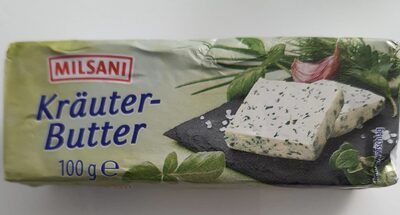
Barcode: 4061458018937
Kräuterbutter
HALAL
📝 Reason: All ingredients in ‘Kräuterbutter’ are plant-based or derived from milk, which are considered Halal under Islamic dietary laws. There are no Haram substances or doubtful ingredients present. The product does not contain any meat or meat derivatives, and there are no Haram E-codes listed among the ingredients.
📄 Certificates: None
Ingredients:
Details
Understanding the Halal Status of Kräuterbutter
Kräuterbutter, a flavorful herb butter, is enjoyed by many, but for those observing Halal dietary laws, it’s crucial to verify whether this product aligns with their dietary needs. We’re here to explore the Halal status of Kräuterbutter by breaking down its ingredients and their respective statuses under Islamic dietary laws.
What Makes Kräuterbutter Halal?
According to Islamic dietary laws, all ingredients in Kräuterbutter are either plant-based or derived from milk, both of which are considered Halal. The formulation contains no meat, meat derivatives, or any substances that could be deemed Haram. Let’s detail each ingredient to understand more about its Halal certification.
Ingredients Breakdown
- Butter: Derived from milk, butter is Halal as per Islamic dietary laws. Milk and its derivatives are accepted in Halal certification.
- Zwiebeln (Onions): These are plant-based and classified as Halal. Generally, plant-based ingredients hold Halal status unless they are contaminated or processed with any Haram substances.
- Petersilie (Parsley): Another plant, parsley is also Halal. Its usage in Kräuterbutter only boosts the flavor without compromising Halal compliance.
- Wasser (Water): Water is universally considered Halal. It serves a basic role as an ingredient without any Halal concerns.
- Knoblauch (Garlic): Garlic is plant-based and deemed Halal, contributing to the rich taste of Kräuterbutter.
- Salz (Salt): Salt, being mineral-based, is also Halal. It’s essential for enhancing flavor.
- Stärke (Starch): Typically derived from plants, starch is Halal unless tainted by non-Halal practices.
- Dill: This herb is plant-based and Halal, adding freshness to Kräuterbutter.
- Rosmarin (Rosemary): Rosemary is also a plant, thus it is Halal compliant.
- weißer Pfeffer (White Pepper): Like the others, this spice is plant-based and Halal.
- Zitronensaftkonzentrat (Lemon Juice Concentrate): Derived from lemons, this ingredient is Halal and adds a zesty touch to Kräuterbutter.
No Haram Ingredients Here
There are absolutely no Haram substances or suspicious ingredients present in Kräuterbutter. Our investigation reveals that all components contribute positively to its Halal status. No E-codes generically classified as Haram are listed among the ingredients, reassuring consumers about its compliance.
The Brand and Certification Context
Kräuterbutter may not carry specific Halal certification logos, but based on the composition of its ingredients and their sources, it firmly takes a stance in favor of Halal dietary practices. Understanding that the essence of Kräuterbutter is primarily tied to natural and plant-based components reinforces the confidence in its Halal classification.
In conclusion, consumers looking for a Halal option in herb-based spreads can enjoy Kräuterbutter without concern. All ingredients are Halal, and they satisfy dietary laws requiring the absence of Haram elements. For those keen on exploring delicious yet compliant culinary choices, Kräuterbutter stands out as a versatile selection.

